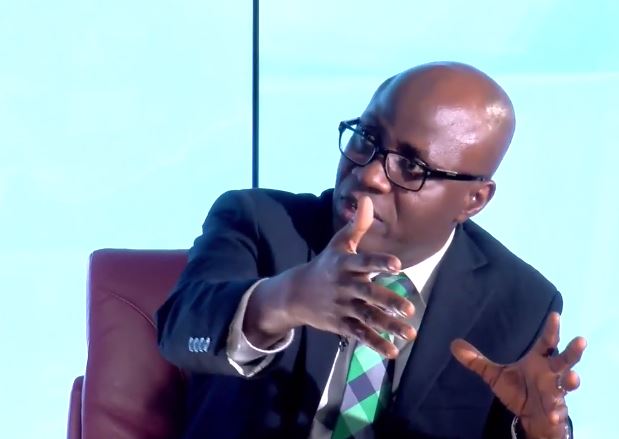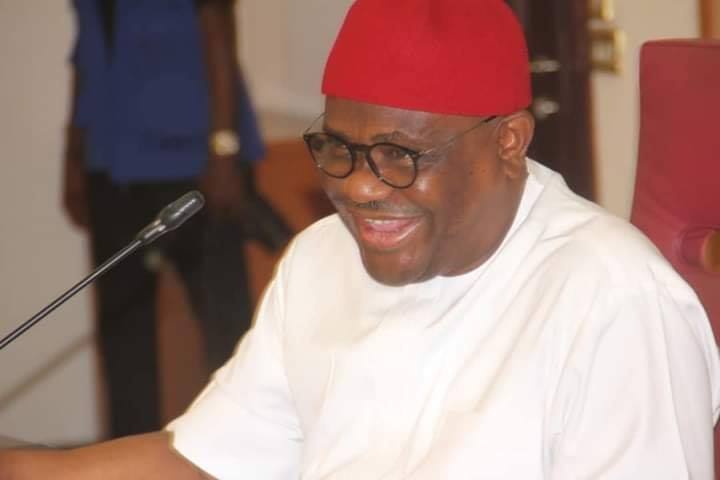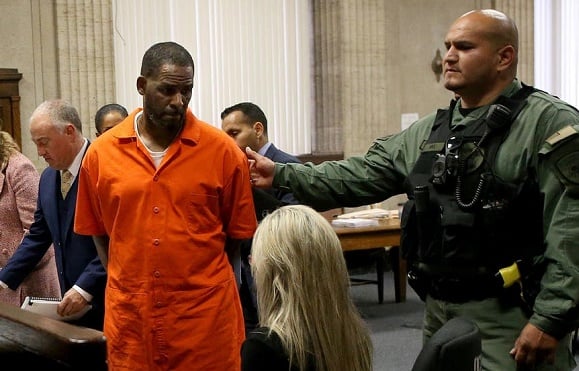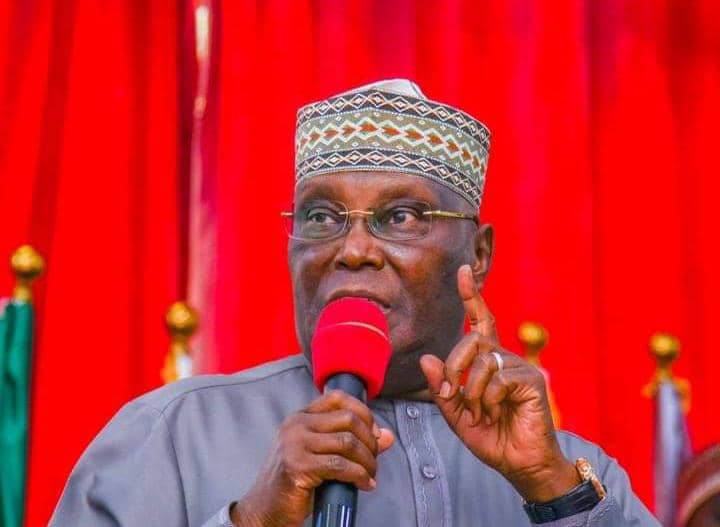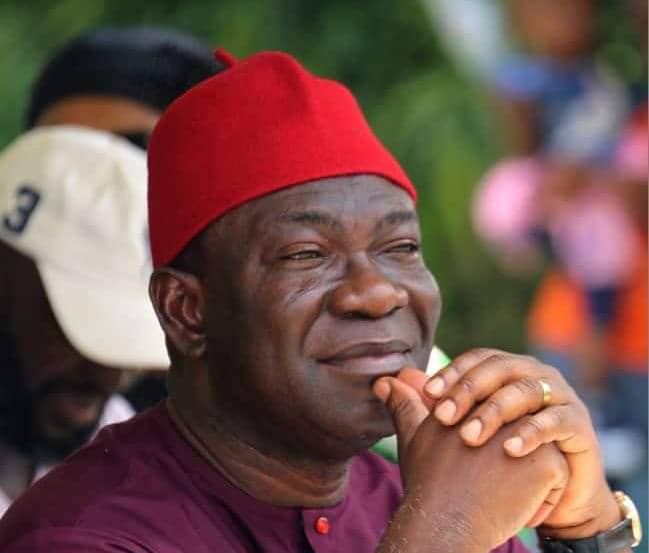Waziri Adio, former executive secretary of the Nigeria Extractive Industries Transparency Initiative, speaks with IDRIS SHEHU on Agora Policy, the think tank and non-profit he just launched “to find practical solutions to urgent national challenges”. The think tank, he says, will conduct policy research, facilitate frank and purposeful dialogues, and build capacity for governance, policy and advocacy
You left NEITI last year after a five-year, non-renewable tenure. What have you been up to, apart from publishing your memoir?
Basically, I have been trying to catch my breath and clear my head, and also trying to get some important things done. About a month after I left government, I went to the University of Oxford as a visiting fellow. I was there for three months. As you mentioned, I have also documented and published my experience in running a federal government agency in Nigeria. The book, ‘The Arc of the Possible,’ was published by Cable Books in December 2021, about nine months after I left government. After I got the book out of the way, I returned to the media, my first love. I was appointed as Contributing Editor to the THISDAY/ARISE Group early this year. In that role, I sit on the editorial board of THISDAY, write a weekly column on the back-page of the Sunday newspaper, and do on-air analysis for ARISE TV. I have also devoted some considerable time to setting up a research institution on an area I am very passionate about, which is public policy. I have founded Agora Policy, a think tank that focuses on developing practical solutions to urgent national challenges. So, it has been 16 months of resting, reflecting, documenting, engaging, and of setting out in old and new territories. I have been busy.
How was the reception to the book?
Advertisement
Spectacular, I will say. When I decided to write the book, I wasn’t too sure how the reception would be, not sure if there was an appetite for that kind of book here, or if the book would not be mis-read or misinterpreted. But the reception has surpassed my expectations. Sale has been good. The book was on Roving Heights bestsellers’ list for many months, and is still in demand. The reviews have been amazing. I have received fantastic feedbacks from readers far and wide. Some of the comments are touching and humbling at the same time. And most of these from people way outside of my network. I am impressed that people have taken the time to read a non-gossipy and sometimes dense book about governance. But I am more impressed and humbled about the impact some of them said the book has had on them or their worldview. We are following up with a series of events around the country to ensure that we can have robust and frank conversations around the key messages of the book and that we can take the message forward. I am glad I found the time to document my experience. I think all those who have the privilege of serving the country should document their experiences for those coming behind them to learn from and to enrich our knowledge of the realities, the challenges and the possibilities of public service in our country.
You’ve not only commented on public affairs as a respected journalist and columnist, but you also tested the water of public service as NEITI’s executive secretary. What is the drive behind your latest participation in public policy shaping?
I think there is a connecting thread in the three spaces that you have mentioned. And it is about service. The most obvious form of public service is working in government. But journalism is public service too. And the think tank I am working on is definitely about public service. As I mentioned earlier, we will be focusing on helping to generate solutions to urgent national challenges. You can’t get more public or more service than that. So, it is always about how much more public value we can create in the spaces available. Linking these spaces is not a new interest for me though, even if I have not always articulated it this way. In 2001/2002, I had a journalism fellowship at Harvard University, called the Nieman Fellowship. My research interest then was an exploration of the intersection between the press, politics and public policy. It wasn’t planned, but that is exactly the direction I have travelled. I have always been interested in how to solve problems, how to create more value. As a journalist, I moved from criticism to prescription. My work in NEITI was driven by solving problems, and revolved around layering policy research and advocacy on the core mandate of the organisation. We created a department for policy. And if you remember, we were churning out policy papers, outside of the standard audit reports. In fact, for the five years I spent there, we had an average of a policy paper every two months, some in book-length format.
Advertisement
What I am doing now is to take that work forward, much beyond the extractive governance space and in a more structured way, albeit outside of government. The primary arena of policy is government. But that is not the sole arena of policy. In fact, being outside of government but understanding how government works and having purchase with both the government and the larger society can be very useful. In Western countries, especially in the United States where there is a profusion of think tanks, most of the great policy ideas even originate outside of government.
I have training in public administration, management and public policy, also from Harvard. After the fellowship I mentioned earlier, I returned for a master’s from the Kennedy School of Government. With that background, and having worked outside and inside of government, I can see that we are not leveraging the policy process enough for national development in this country. There are so many gaps. Policies are largely driven by whims or merely handed down without proper consideration of context. The public is mostly missing from the policy design process. The level of deliberation and participation is low, which limits consensus-building on one hand and hardens resistance on the other. Then, the capacity for policy formulation, design and implementation, in fact the overall capacity for governance across the three tiers, is quite thin. Agora Policy is designed to contribute to the process of addressing these gaps. By the way, Agora means “public” in Greek.
With Nigeria’s current situation would you say the country needs more policies or institutional/system strengthening?
I don’t think it is an either/or thing or that we have that luxury of picking one over the other. We need both. We need to do more of both. We need to make better, more effective and more appropriate policies. We need to strengthen the capacities of our institutions and systems to deliver effective and appropriate policies in particular and good governance in general. Most importantly, we need to upscale the human capacity to design and implement great policies and good governance. The capacity thing is what we always gloss over. But state capacity is generally abysmal, and I am not just talking of the sub-national level.
Advertisement
What area of public policy will the think tank be focusing on: research or advocacy?
Agora Policy will focus, for now, on economic, governance, social and environmental policies. The core of Agora Policy’s work will be policy research, aimed at generating practical solutions to challenges in those areas. The research will have academic depth but will not be presented in academic format or language and will not be just research. For example, it will not be research just to establish if there is a link between A and B or to investigate what causes Z. This will be research that is solution-oriented. About what needs to be done, based on carefully considered evidence and assessment of options, and possibly about how to move the needle on thorny issues. The emphasis will be on actionable recommendations, based on evidence. This is what think tanks do. They serve as incubators of ideas. But in addition to generating and incubating ideas, we will also provide a trusted platform for honest conversations between policy makers and other policy actors, to ensure an all-of-society and more inclusive, and therefore more sustainable approach to policy making. The third thing we will be focusing on is capacity building across the board, from capacity for policy formulation to capacity for policy monitoring and advocacy. Earlier, I mentioned gaps that we have observed in policy making in Nigeria. Our response to those gaps, or our theory of change if you will, can be captured with three words: evidence, dialogue, capacity.
Given your previous role in the field as a former public office holder, what are lessons learnt that stand your think tank apart from the numerous established?
The first thing that I need to say is that we need many more think tanks in this country. Even in countries where you have the best academic institutions and where governance deficit is not as dire as we have here, they still have hundreds of top-notch think tanks, from partisan ones to independent ones. We need as many Brookings Institution, Carnegie, Chatham House, Centre for Strategic and International Studies, RAND Corporation and others as we can have. So, we need more think tanks, not fewer. Different think tanks focus on different things. What I think will differentiate us will be our understanding of how government works, the credibility that comes with being independent and being seen as a honest broker between state and non-state actors, and the obsession with finding workable solutions, not finding faults.
Advertisement
In the concluding part of The Arc of The Possible, you called for more professional, morally upright people to get into government. Why do you keep advocating this trend despite your exposé of how skewed the system has become?
I sincerely believe change is possible and that we need all the competent and upright people we can get to improve governance in our country. But I do not think of this as a binary. So, I am not saying all the people within the system are incompetent and corrupt. Nor am I saying all those with professional backgrounds are competent and upright. My first point is that we need people with fresh ideas and with fresh eyes in governance in Nigeria, not just those interested in perpetuating the status quo. Whether these people are from within or from outside government, we need them in sizeable number, a critical mass, if you will. We people who really want to make the difference, who know how to get things done in the public sector, and who can do this while upholding important values. I believe there are many people who can do this but they also need to see what it is possible and they need to be guided, especially on how to avoid landmines planted for just people like them. That’s one of the key messages in the book. But I also made the point that individual example is not enough. We need to reform the overall environment in which individuals operate. The operating environment conditions behaviour. I concluded that chapter of the book with a line like this: while individual example is key, the environment is king.
Advertisement
With Nigeria gearing for a change of administration in 2023, what sort of policies would you advise the next government to prioritise?
We are actually working on a set of policy papers on the key challenges facing the country. We want to work with others to steer the debate from the predictable focus on personalities to emphasis on key developmental issues and challenges. While there is use in focusing on personalities, especially in assessing the fit for the positions, we think that should not obscure or be at the expense of the need to beam an intense light on the critical challenges facing the country now and the prescriptions of those offering to lead the country at this critical moment. We also plan to provide a platform for informed conversations and deliberations with political actors on the issues, their understanding of them and their prescriptions before and after the elections. We will roll out publicly with these activities. We have received the commitment of a major foundation to support us on this. We will provide more details soon.
Advertisement
Add a comment
